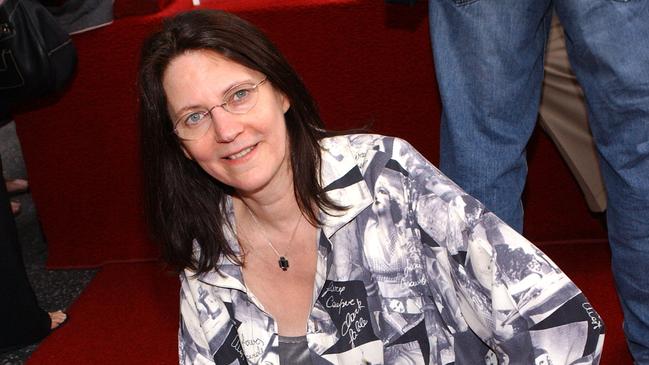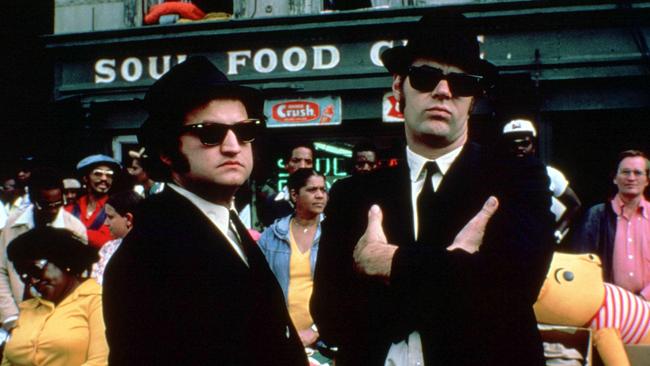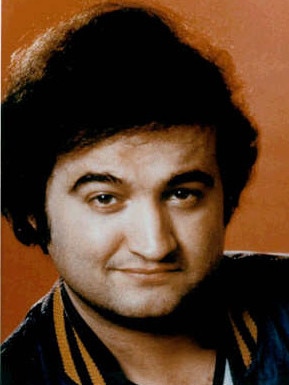How Judy Belushi-Pisano, the ‘Blues wife’, defended John’s reputation
The comedian’s widow Judy defended his legacy by establishing a charity for those struggling with addiction.

At the age of 17, Judy Jacklin fell in love with the charismatic son of an Albanian immigrant – a football star in the year above who worked behind the cash register of his family’s Chicago diner. His courtship of her was romantic and relentless.
“He hit me in the arm with an oar when we were having a water fight,” she said. “Then he phoned every night for a week to ask how my arm was.”
Life with John Belushi would only grow more intense. Early on in the relationship he explained that he had dreams of being a star – “Don’t stay with me,” he warned, “or you’ll always have to support me” – and the marriage was overshadowed by his fame as one of the most talented comic actors of the 1970s, and his struggles with addiction, which culminated in his death from an overdose at the age of 33.
Although Belushi-Pisano paved the way for her husband’s success – as a producer on the National Lampoon Radio Hour, she got him a shift on a comedy program alongside Christopher Guest and Bill Murray, which led to his break on Saturday Night Live – her star was ultimately eclipsed by his.
“During the 15 years we shared our lives, I helped John pursue his dream, letting it become our dream,” she said.
“I wanted to be an artist and I pursued that as well, but John’s work quickly became the first priority. His struggles, his disappointments, his successes – these too became mine.”
She helped to scout locations and design costumes for Animal House (1978), the frat house comedy which made Belushi’s name as a big screen actor (she also appeared in two scenes as Belushi’s dance partner during the toga party). She designed the logo and two album covers for the Blues Brothers, Belushi’s two-man revue band with Dan Aykroyd, and she was the producer on the 1980 Blues Brothers film in which she also starred as a cocktail waitress. On set she was known as “the Blues wife”.

After Animal House, Belushi’s heavy use of cocaine became an open secret, and in 1981 she gave him an ultimatum: get clean or she would leave.
He was found dead on the morning of March 5, 1982, in a bungalow at the Chateau Marmont in Los Angeles. Musician Cathy Smith was convicted of involuntary manslaughter after admitting that she injected Belushi with a lethal dose of cocaine and heroin.
“It was like a gut punch,” Belushi-Pisano recalled. “And then it was like I was thrown into the centre of a tornado. Everything made me think of John. An old Volvo: that was his car. A man with a beard: he was so huggable with a beard.”
She arranged for a traditional Orthodox Christian service conducted by an Albanian priest and buried him in a cemetery on Martha’s Vineyard, where they had a house. His gravestone, with the inscription “I may be gone but rock and roll lives on,” became a tourist attraction, and after fans littered the gravesite with bottles and beer cans, she moved his coffin to an unmarked one.
Intrigue grew about the circumstances of Belushi’s death and his wife tried to protect his legacy. In 1984, Bob Woodward, an investigative journalist from The Washington Post, decided to write his biography. Belushi-Pisano agreed to be interviewed but said she had assumed it was for a series of articles and that she was unaware Woodward had signed a book deal. She gave Woodward access to her diaries and her husband’s closest group of celebrity friends, including Aykroyd and Jack Nicholson. When she read an advance copy of Wired: The Short Life and Fast Times of John Belushi, which focused heavily on his drug use, she tried unsuccessfully to sue.
Her husband, she said, was a “warm” and “very likeable person”. Woodward had “missed all that” and she said his methods had been manipulative.
The biography was panned by the critics. Aykroyd called it “exploitation, pulp trash”.
In 1990, Belushi-Pisano published her own memoir, Samurai Widow (a reference to one of her husband’s characters on Saturday Night Live).
“John wasn’t perfect,” she wrote. “But he was a full human being – caring and adventurous and kind. And he not only made people laugh. He made them feel.”

Belushi-Pisano was born Judith Victoria Jacklin in 1951 in Oak Park, Illinois, to Les, a salesman for a tool and parts company, and Jean Marsel Buchanan, a secretary.
At Wheaton Central High School, where she met Belushi, Judith was a straight-laced student – president of her senior class with ambitions of becoming “the first woman president” – and yet halfway through a political science degree at the University of Illinois, she dropped out to study art. Belushi, meanwhile, had started a three-man comedy troupe and in 1973, they moved to New York where she got a job in the art department of the National Lampoon magazine (at their house on 16th Street they played heavy metal music so loudly, one neighbour complained, that it made “your teeth hurt”).
Belushi-Pisano was shy and lean, but she was no shrinking violet. “A first-class fidgety maverick and free spirit,” wrote one journalist, “she bounced back and forth in her chair in wacko clothes like electro-lavender socks and a lavender pinstripe, tab-collar shirt. Not to mention white, lace-up jazz-baby shoes.”
She and Belushi married in 1976, after living together for five years and developing “a common ego of sorts, an intense interdependency”.
After Belushi’s death, she settled in Martha’s Vineyard, where she founded the Second Chance Foundation, a charity that helps people with addiction, and partnered with Aykroyd to run the Blues Brothers brand.
She married Victor Pisano, a film producer, in 1990. They divorced 20 years later. She is survived by their three daughters, Jessica, Rebecca and Vanessa, and son, Lucas. She was sanguine when asked about life with Belushi in later years: “I went along on that wonderful and exhilarating and sometimes infuriating ride,” she said. “And I have lived to tell it”.
THE TIMES



